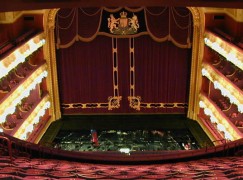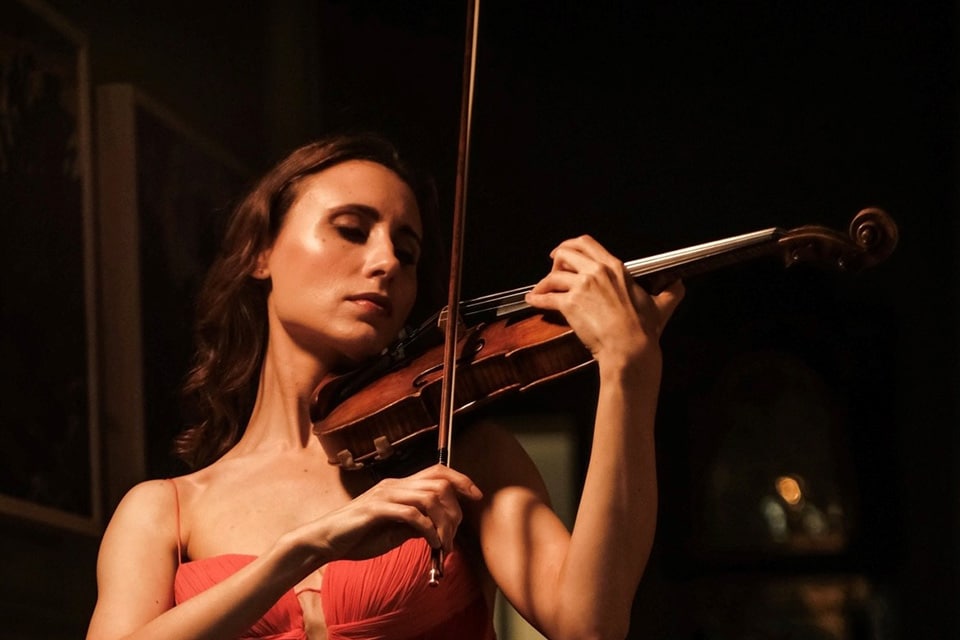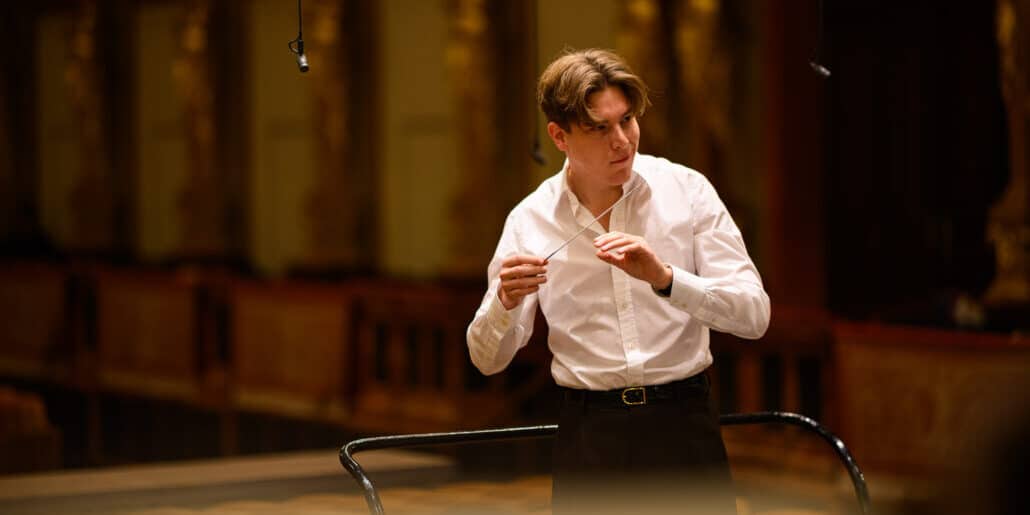Covent Garden denies that Wagner causes hearing loss
mainThe viola player Christopher Goldscheider is suing the Royal Opera House, his former employer, for damage to his hearing caused by rehearsing in front of a large brass section during Wagner’s Ring.
The ROH maintains it took all necessary precautions and provided ear plugs.
Christopher Goldscheider is claiming £750,000 in lost earnings and further damages for a diminished lifestyle.
The defence statement by David Platt, QC, contains these words:
The operas of Richard Wagner often provoke strong emotions.
Whilst probably the greatest musical theatre ever written, they have been appropriated by German nationalism and engender controversy to this day.
Nevertheless it is unprecedented for it to be alleged that they cause actual injury to its participants….
The music of Richard Wagner is not to blame.

David Platt QC also said the Royal Opera House is ‘one of the great national and international cultural institutions of this country, and the case could have ‘significant implications’ for all UK orchestras.
Since the case continues, we refrain from comment.





It is NOT unprecedented, by any means.
==case could have ‘significant implications’ for all UK orchestras.
So…? that’s not enough reason to gag this complaint
Good luck to Mr Goldscheider
Whatever the outcome, Rodney, luck will have had nothing to do with it.
There will be no winner or winners out of this case in my humble opinion but, compared to you, I’ve only been in this business for a measly 30 and a bit years so what would I know?
Personally, I think it’s time for a glass of wine and some cheese.
🙂
Chris used to play viola in BBC SO. I bet he regrets the move to ROH, where the players are always more cramped together
The ROH have really lawyered up. But you’d think this QC
https://www.crownofficechambers.com/barristers/david-platt-qc/
with his experience should really be representing Mr Goldscheider
In an ideal world he would.
The ROH have really lawyered up. But you’d think this QC
https://www.crownofficechambers.com/barristers/david-platt-qc/
with his experience should really be representing Mr Goldscheider
In an ideal world he would.
I think the judge and defence counsel should spend an afternoon sitting in front of the brass during a Wagner rehearsal or any other rehearsal at Covent Garden. I’m sure they would change their tune on this matter.
Was he happy to take the job or not?
(Maybe there might have been an option in the ROH canteen doing dishes instead)!
Where and when will a little self-responsibility and consequence take form?
Wasn’t there once a case of an American woman suing some big electrical co. because her microwave didn’t include instructions that she shouldn’t dry her dog in it!
Oh God!
An absurd comparison. Yes, as a violist in an orchestra he would certainly be aware of the brass being loud. That doesn’t mean he agreed to lose his hearing, nor does it absolve the organization of taking some responsibility to protect its employee’s hearing. This is certainly an issue that many orchestras are aware of, based on the number of plexiglass screens and ear-level headrests I’ve seen at concerts.
Thanks for having explained this so well, and in a much calmer way than must of us would have been able to answer such a post.
As a practicing acoustician, former prof. who taught musical acoustics, and an amateur (bad) violist, I believe both sides have a probable merit for their claims.
The trombone is the second loudest instrument in the orchestra with respect to sound power level, the bass drum being the highest. Note that sound power output and perceived loudness are not the same; the latter depends on pitch as well as acoustic output.
Wearing earplugs does not necessarily protect one’s hearing to the extent one might think. The level of protection is dependent on the device used and how well it fits in the ear canal. The literature shows that more than half the rated noise reduction can be lost due to poorly fitted earplugs. Often the cause is the user pulling out the plugs slightly from the ear canal to enable better hearing. Many of the so-called acoustic shields used by orchestras provide little noise reduction, certainly compared to a well-fitted set of earplugs.
Over the years there have been several court cases in the US of acoustic trauma causing alleged loss of hearing. It will be interesting to see how this case turns out.
“Often the cause is the user pulling out the plugs slightly from the ear canal to enable better hearing.”
Yes, I do this too, but I think this is not unreasonable. While earplugs offer protection, they also distort the perception of one’s sound considerably, specifically if one plays a wind instrument. Possibly with the exception of the flute, you hear the sound from within your body much stronger, including tongue and throat movements, while the perception of the sound the instrument projects is considerably muffled. Therefore I find it best to vary the way I push my earplugs in according to need. Only in extremely loud passages I will wear them fully inserted as the makers foresee it.
Mr.Goldschneider should be happy that he never played the Ring with Georg Solti!…
Hearing loss in orchestra musicians is a well-known, old problem. There is a radical solution: change the placement of the musicians such that no one’s ears are in the “line of fire” of the brass and percussion sections. That would be a good research topic for acousticians, musicians, and conductors – conservatories should apply for EU funding so that we can get something good from the EU, not only prohibitions and odd regulations.
All orchestral playing causes hearing loss if done for a length of time. There was a study recently that found even for a string player sitting away from the brass (and not necessarily playing Wagner), the decibels are too high. There are some really good earplug options these days.
But if you’re wearing earplugs how can you tell what everyone’s playing?
Earplugs don’t stop the sound completely, any more than sticking your fingers in your ears does. (Even if they can stop all sound from entering through the external auditory meatus, aka the “ear hole,” sound still penetrates through bone & tissue, the way your neighbors’ arguments and TV noises can penetrate through walls.) What they do do is reduce the incoming noise to a bearable level.
Ear plugs can, however, make it difficult to hear yourself & your colleagues in the way that you’re accustomed to. If I put one in my right ear to protect myself from the percussion, I find that — besides sounding strange to myself — I can’t hear my 2nd flutist or the clarinets very well while I’m playing. Sometimes the trade-off is worth it.
Earplugs aren’t the solution, at least not in my experience. It’s true that the high end earplugs filter out certain damaging frequencies, but the main drawback with any type of earplug is that one can’t judge adequately how loud one is playing. This is particularly hard and disconcerting for solo players . I find that I seldom use them , for this reason except for perhaps music where we are backing pop groups who tend to crank up the volume so loud that we are never heard anyway!
For many people, hearing loss while playing (or listening to) Wagner is not a disadvantage.
Also, loud passages may be advantageous in particular circumstances:
“I love Wagner pieces at concerts, you can talk with your neighbour without being overheard” (Oscar Wilde).
As the H&S rep for an amateur theatre group and someone who has spent 30 years in heavy industry, much of which around industrial gas turbines, I am also watching this case with interest. Having spoken to two musical directors I know I think the professional music industry could be in for a shock if he wins and this results in the HSE taking a closer look at how exposure to noise is regulated within the entertainment sector. Whilst protection of people’s health and safety is the first and last concern of mine, I worry that the cost of doing so may well make some businesses untenable. I await the result with interest,
Taking reasonable measures and above all taking the issue seriously in the first place would neither have been impossible nor exceedingly expensive. Not having done anything could prove to have been the most expensive course of action, and rightfully so.
You’ve touched on what, from my limited experience anyway, is a big part of the issue Gerhard. The attitudes towards hearing protection for musicians that I’ve encountered thus far are like 30-year industry throwbacks, with the ‘if-you-can’t-stand-the-heat-stay-out-of-the-kitchen’ ‘man up you wimp’ ‘how can *they* make you wear them’ responses being all too common. With regard to the expense, it’s as much measuring the sound levels as providing and then enforcing the wearing of hearing protection I was concerned about.
I don’t think enforcing the wearing of hearing protection in orchestras would be a good idea. While I have been an early adopter myself, I know enough colleagues who apparently just can’t cope with it. I’m basically quite happy with the situation as it is in German orchestras right now: the employer is responsible for providing individual hearing protection on request for every musician, but nobody is forced to use it. Where more efforts would really be needed IMHO are a better scheduling which would take noise exposure into consideration, something which doesn’t happen at all at this point, and a better equipment of the orchestra space with absorbing and sound deflecting devices, which is by now very rudimentary, at least where I work.
So? What was the outcome? The verdict was due ages ago. Does all this no news mean that the ROH have settled put of court? I sincerely hope not…..
Sorry, “out” of court….
Does anyone know what has happened with this case? I’ve got severe hearing damage from my Symphony Orchestra job and although I would never consider sueing my employer I am extremely interested and concerned about the outcome.
No, sorry, I haven’t heard anything new either. But if you are sure that you got severe hearing loss from your job, why would you never consider suing your employer for damages? Do you really feel they have done everything necessary and possible to protect you?
No orchestral management across the globe has done everything necessary and possible to protect their players Gerhard, not one. Why? Because nobody knows what “everything nevessary” actually is whilst they still try to retain some sort of an environment that makes it feel more like an orchestra than a cavernous hair salon on pensioner’s day.
I’m happy to admit that I don’t have the answers anymore than my management or any other management does to this very difficult situation but I will always be searching for ways to cope and I am certainly not one of those who expect to be bottle-fed everything by my employer.
We, as players, need to be just as proactive as they are at managing this situation and taking them to court doesn’t fall comfortably into what my idea of ‘proactive’ means.
Still, it’s dog eat dog, it’s every man or woman for themselves and while we’re at it we’d better not forget, God forbid, to look after number one.
Anyway, I’m off to the wine fridge, cheers!
Norman, you are still refraining from comment, does this mean the Goldscheider/Royal Opera House case is ongoing or maybe, as usual, you know what nobody else in this World knows but are keeping schtum for legal reasons, or perhaps you simply have nothing to say on the matter?
Maybe you could enlighten us all without being taken to the high court….
Cheers Norm.
All the best.
Ozzie.
https://www.justice.gov.uk/courts/court-lists/list-cause-rcj
Court 13 at 2pm, tomorrow, Wednesday the 28th of March.